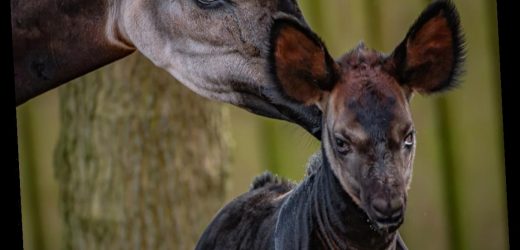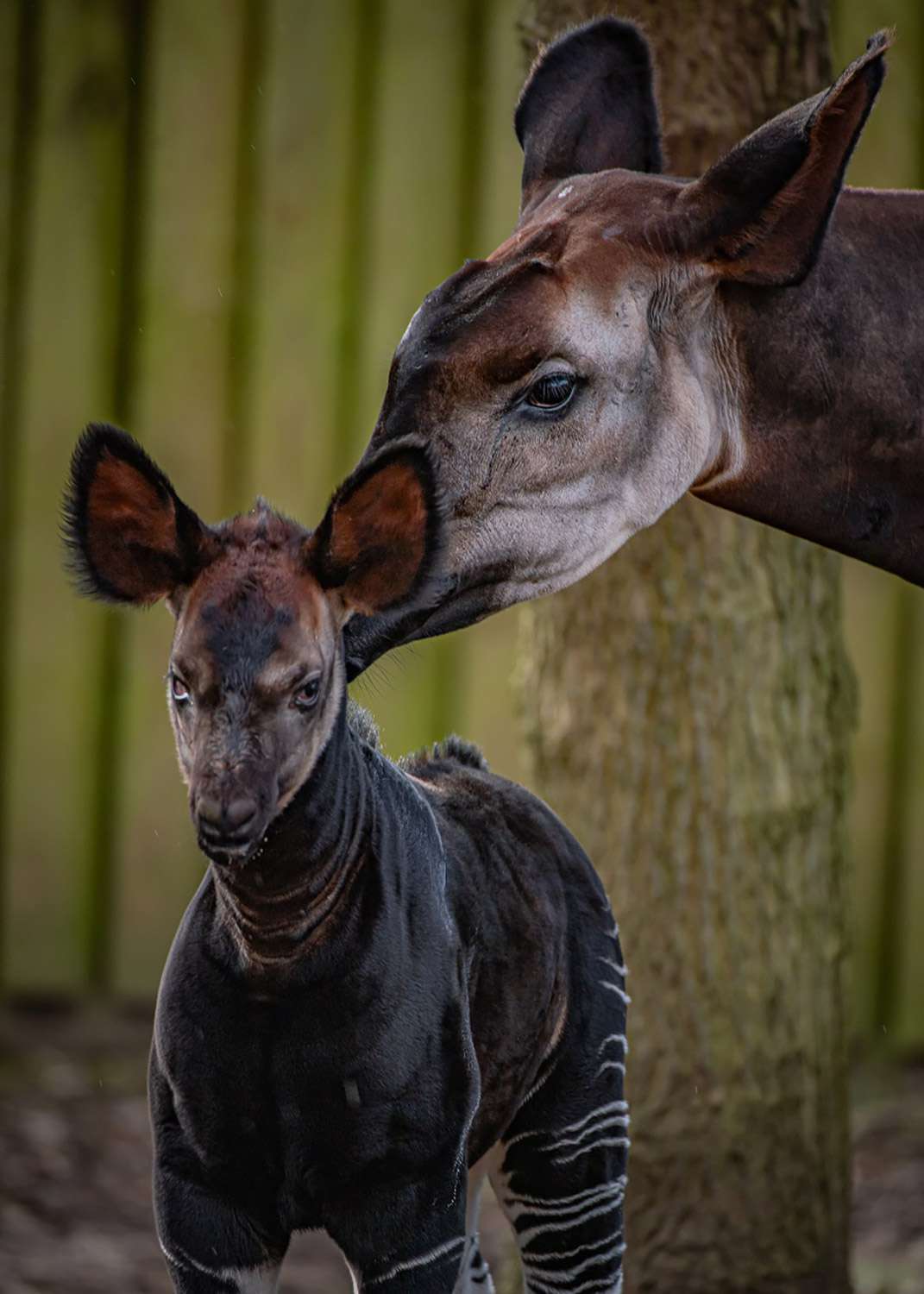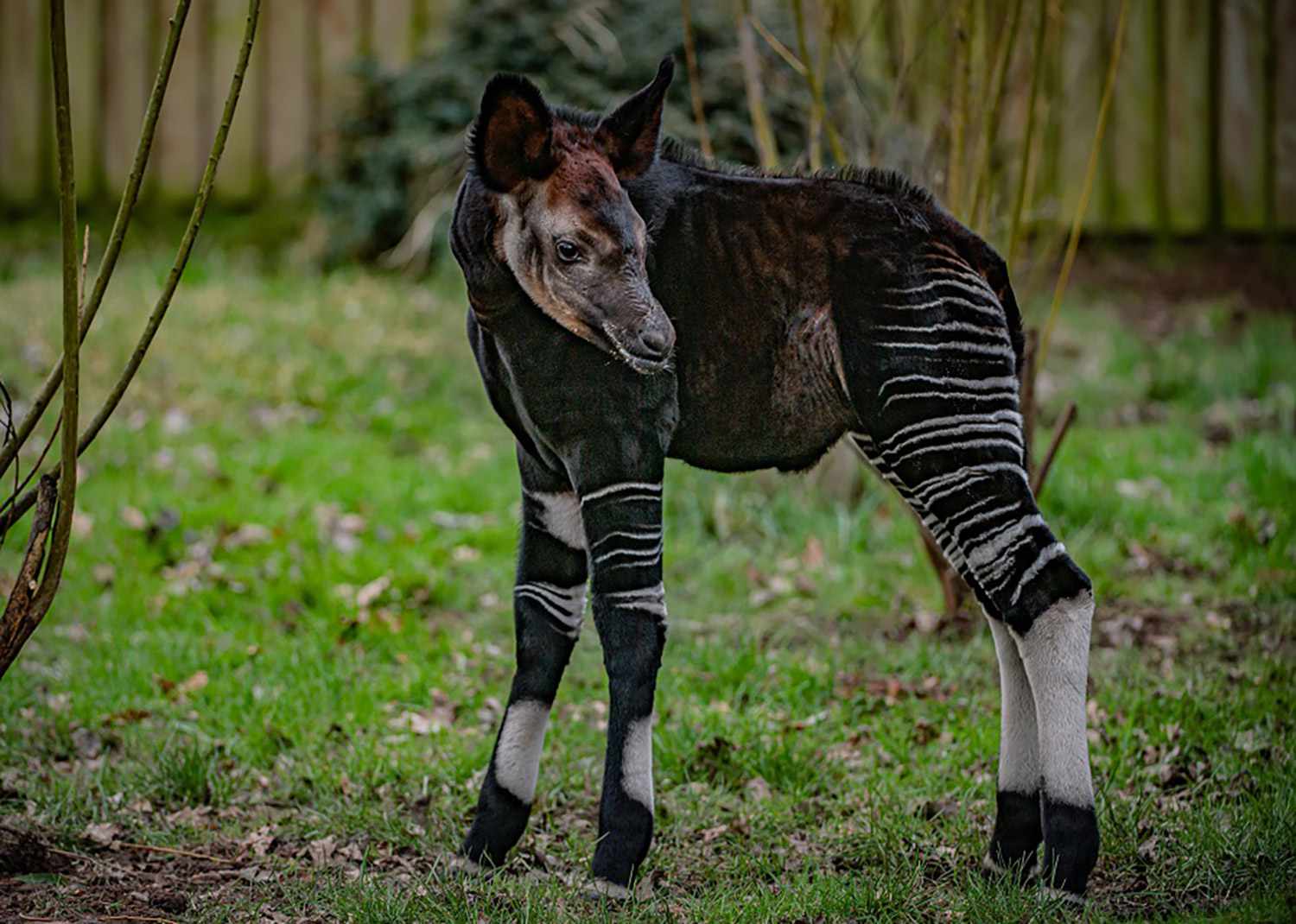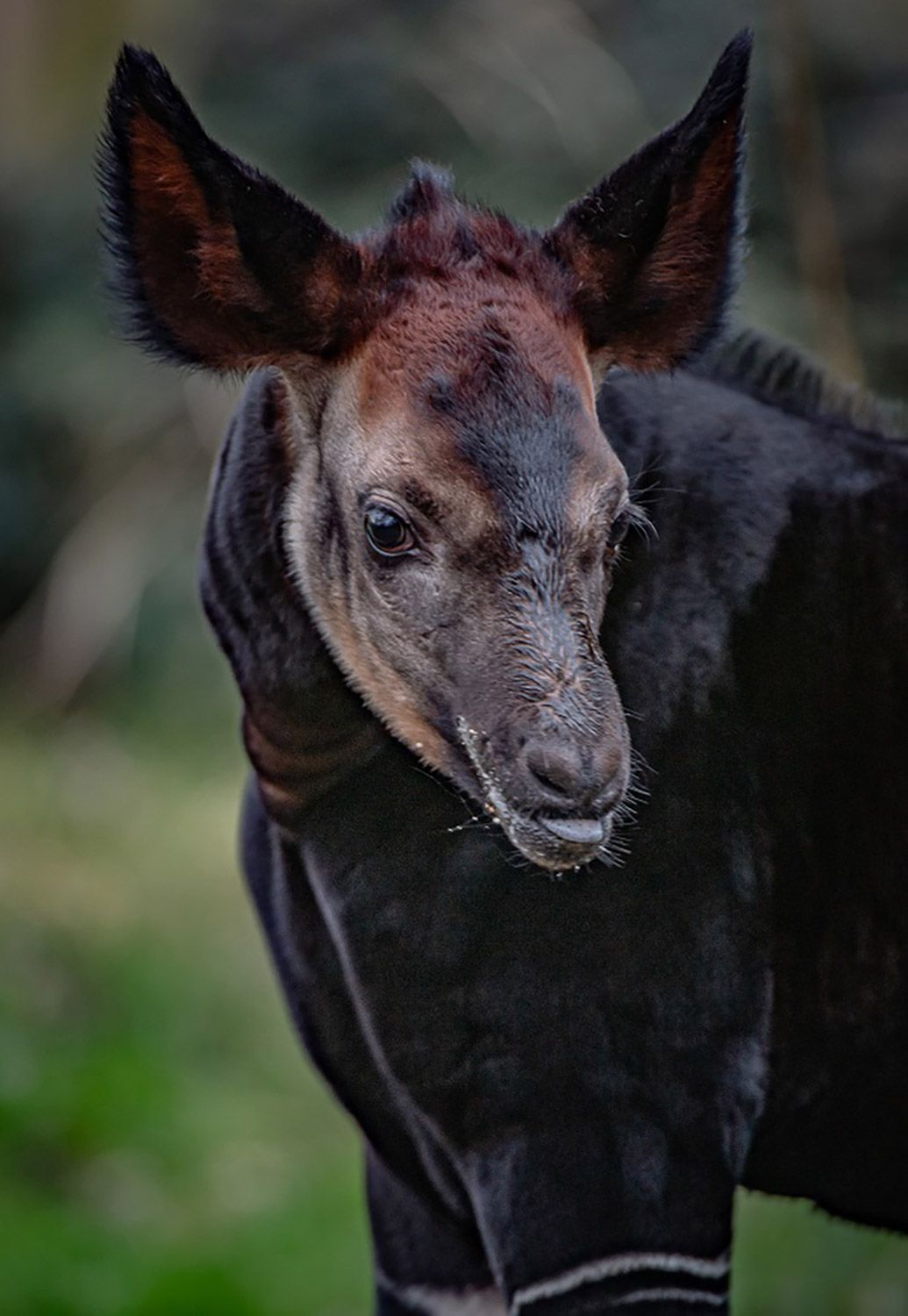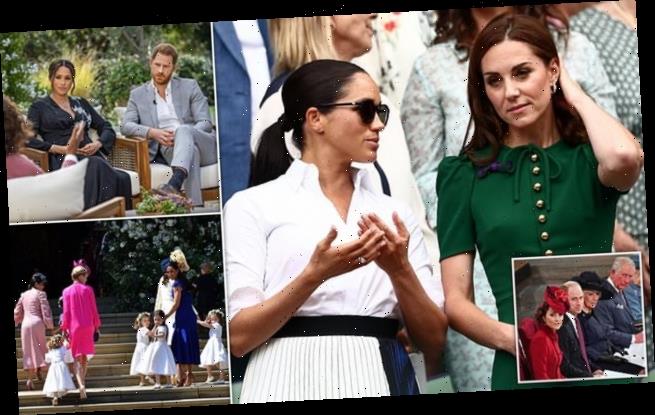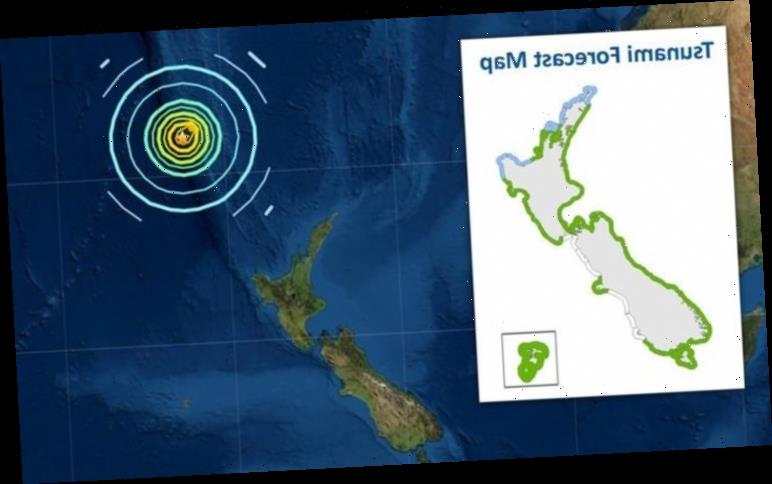After a 14-month-long pregnancy, K'tusha the okapi finally got to meet her little girl.
The 7-year-old Chester Zoo resident gave birth to her calf Nia Nia in late December, and now the rare baby is ready to meet the world. Nia Nia is named after a village in the Democratic Republic of Congo — the only place in the world where okapis are found in the wild, according to a release from the English zoo.
Nia Nia was on her hooves shortly after birth, but it took her several weeks to gain the confidence to leave her cozy nest with mom and explore the outdoor part of her exhibit.
"The birth of an okapi calf is cause for great celebration — they are incredibly rare and incredibly special. Mum K'Tusha is so far doing a wonderful job of caring for her newborn. Watching her gently encourage her new baby to its feet in those precious moments shortly after her birth was a real privilege to see," Sarah Roffe, team manager of the okapis at the Chester zoo, said in a statement.
"Okapis are incredibly secretive animals and, for a little while following her birth, Nia Nia had not wanted to venture too far and had instead remained snuggled up in her cozy nest area, with mum returning to her every few hours to allow her to feed," she added. "But now she's gaining in confidence every single day; she's bouncing with energy and eager to explore. She's a joy to watch — she's all ears and long, spindly legs!"
Nia Nia isn't abnormally secretive for her species. According to the zoo, okapis, the only known living relatives of giraffes, were once called "African unicorns" for their elusive nature, and the species wasn't discovered until 1901 because they were so skilled at staying hidden.
Unfortunately, even with their elusive ways and the protection of Congolese law, okapis are still regularly poached. The species has suffered a "50% decline in the past two decades — a result of hunting for its meat and skin, habitat loss and civil unrest in the country," the zoo reported.
The species is currently listed as endangered on the International Union for the Conservation of Nature's (IUCN) Red List of Threatened Species.
"With only 76 okapis in zoos across Europe, and with sightings in the wild becoming even less common than before, every birth is therefore vital to the endangered species breeding program," Nick Davis, the deputy curator of mammals at the Chester Zoo, said. "The safety-net population in progressive zoos is protecting future conservation options for the okapi, so not only is Nia Nia's arrival an important moment for us, it's an important moment for the species."
Source: Read Full Article
